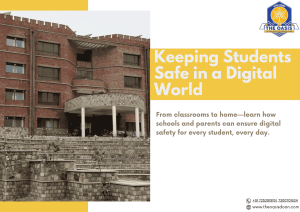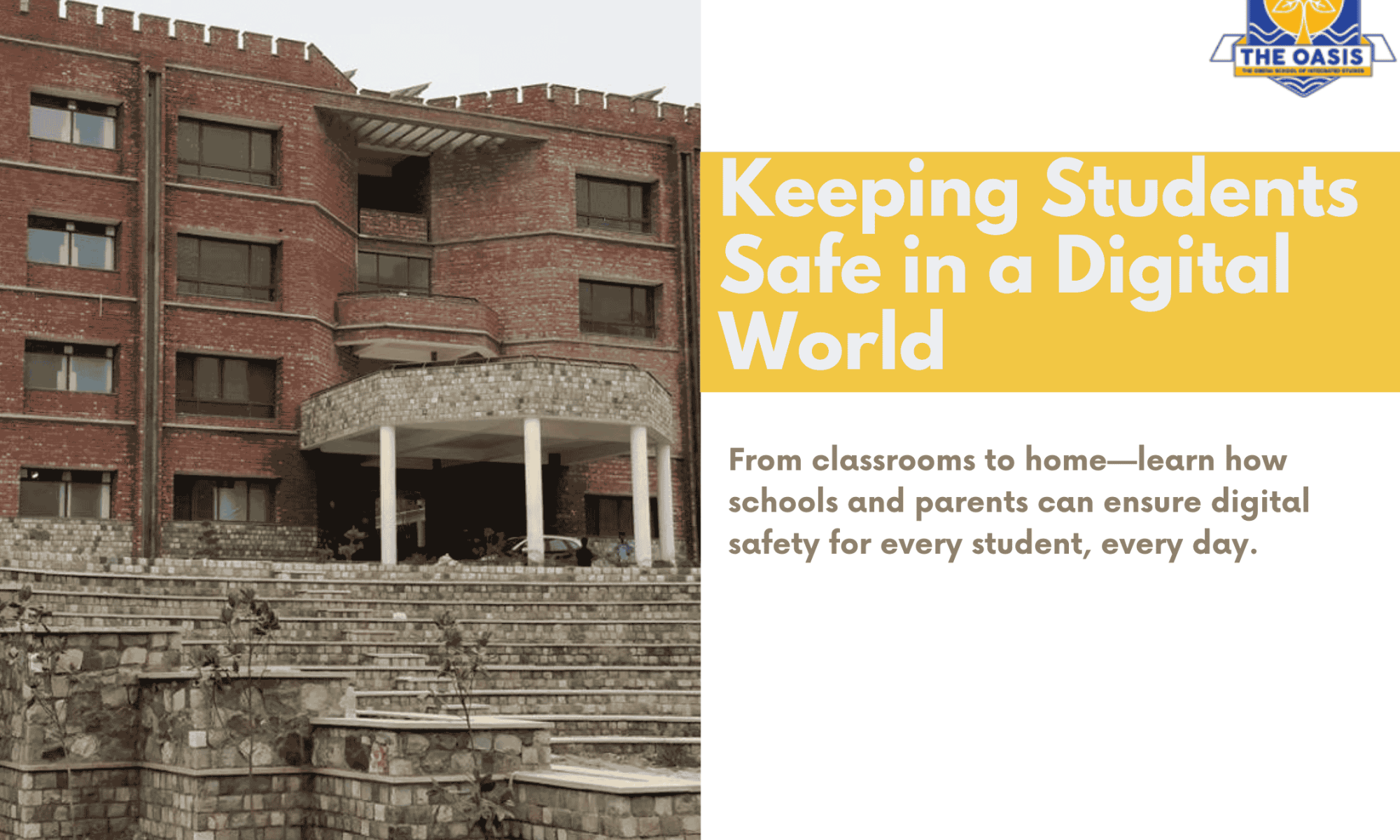
In the modern era of technology, the Internet has become an integral part of education. Online assignments and virtual classrooms are the order of the day now. Students depend on digital sources on a daily basis. However, with these benefits come serious concerns about online security.
Cyber Safety is now a vital part of every school’s responsibility—especially in technologically advanced institutions like boys boarding schools in Dehradun, where students often have independent access to digital devices. Keeping kids safe on the web is not a technical issue; it’s about developing a culture of responsibility and awareness with students, teachers, and parents.
Why Cyber Safety Matters in Schools

The Growing Use of Technology
With education increasingly moving online, learners engage with many different digital platforms—ranging from learning management systems and video conferencing to social media and education games. Convenient as these platforms are, they also put children at risk of cyberbullying, identity theft, online predators, and misinformation.
Vulnerability of Young Users
Students, especially younger ones, often lack the knowledge to recognize online threats. Without proper guidance, they may fall prey to phishing scams, overshare personal information, or interact with strangers online. Therefore, Cyber education is essential to help them develop the skills needed to navigate the digital world responsibly.
How Teachers Can Foster Cyber Safety in the Classroom

Teachers are at the forefront when it comes to student usage of digital resources. The following are practical ways in which educators can boost safety in classrooms:
Integrate Lessons
Teach fundamental principles as part of school curricula. Lessons may involve:
- Understanding secure passwords
- Recognizing suspicious links or emails
- Being respectful and kind online
- Avoiding oversharing personal information
Demonstrate Safe Online Conduct
Teachers must model safe and responsible use of technology. For instance, using school email addresses, proper citation when using content, and teaching students how to check information online.
Encourage Reporting
Encourage a culture where students feel safe reporting suspicious or inappropriate online behavior. This assists in curbing issues such as cyberbullying at the earliest stage.
Role of Parents in Supporting Cyber Safety at Home

While the schools have a big responsibility, safety is everyone’s responsibility. Parents need to keep reinforcing safe online behavior within the home.
Keep Communication Open
Discuss with your child their online experience on a regular basis. Ask them about apps or websites they use and whether they’ve ever felt uneasy online. Openness helps kids feel comfortable sharing concerns.
Set Boundaries
Set screen time guidelines and have tech-free mealtime and bedtime. Not only does this reduce exposure, but also promotes a healthier lifestyle.
Use Parental Controls
Activate parental controls on apps and devices to limit access to age-inappropriate material. Such tools as Google Family Link, Apple Screen Time, or third-party applications are available to track use.
Teach Critical Thinking
Help children understand that not everything online is true or safe. Teach them to question sources, avoid clicking unknown links, and be cautious when interacting with strangers.
Tools and Resources for Cyber Safety in Schools
To ensure a comprehensive approach, schools should utilize a range of tools and programs that support
Secure School Networks
Schools need to place robust firewalls, antivirus software, and filters in place to block objectionable content. Periodic software updates and security scans are necessary to ensure system integrity.
Platforms
There are several platforms that offer safety education and tools, such as:
- Cyber Smart: Offers free resources for schools to teach digital citizenship.
- Google’s Be Internet Awesome: Interactive lessons for students on online safety.
- NSPCC Online Safety Tools: Resources for schools and parents in managing digital risks.





 The Oasis offers an exceptional variety of co curricular activities tailored to the diverse interests and talents of its students. Here are some highlights:
The Oasis offers an exceptional variety of co curricular activities tailored to the diverse interests and talents of its students. Here are some highlights:
 The Oasis boasts state-of-the-art infrastructure seamlessly integrated with its serene natural surroundings. Dormitories are well-equipped to ensure comfort and focus, while recreational areas provide the perfect backdrop for relaxation and creative pursuits.
The Oasis boasts state-of-the-art infrastructure seamlessly integrated with its serene natural surroundings. Dormitories are well-equipped to ensure comfort and focus, while recreational areas provide the perfect backdrop for relaxation and creative pursuits.
 Regular excursions to the Mussoorie hills and nearby attractions offer students a chance to step out of their comfort zones. These trips are designed to blend learning with adventure, fostering adaptability and curiosity.
Regular excursions to the Mussoorie hills and nearby attractions offer students a chance to step out of their comfort zones. These trips are designed to blend learning with adventure, fostering adaptability and curiosity.





